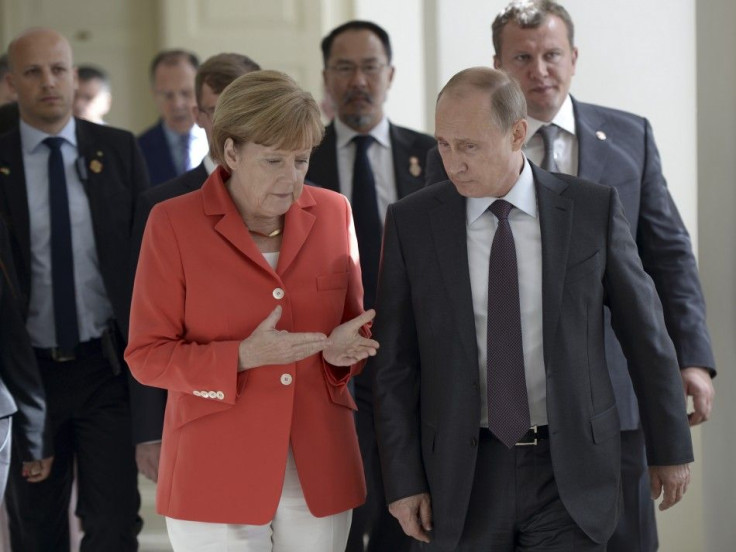Treaty Changes Can Be Considered For Retaining UK in EU, Says Germany's Merkel

For the European Union, Russia has been top of the agenda for long, after the annexation of Crimea in 2014 and followed it up with sanctions and joint efforts with NATO to ward off the threats. But in the coming months, the bloc will see the approach to Britain's demand for reworking its European Union mebership treaty as another vexing issue. The U.K. is preparing for a yes or no vote on the question of exiting European Union, if its demand is not favourably addressed. Obviously, European Union cannot let go an influential state like U.K. from its fold, because of the inflexibility of a few leaders, even as members like France are opposed any special deal to propitiate the U.K.
In a diplomatic approach, Angela Merkel, in a BBC interview touched upon the U.K.'s proposed referendum and said that European Union can consider treaty change if that is what it takes to keep the U.K. in. Ms Merkel said she was confident that conditions can be created for ensuring Britain’s stay but she is "not losing sleep" over it. "I'm optimistic that if we all want it, we'll find a good solution," she said. "It's not about losing sleep over this, but about doing our work and creating the necessary preconditions for Britain to remain in the European Union," Ms Merkel said.
Supremacy Of Parliament
British Prime Minister David Cameron, soon after his May 7 election victory, set out on a European Union tour to meet up with European Union leaders to explore the resetting of his country’s European Union membership terms, ahead of the referendum, possibly in 2016. For the U.K., tightening rules on migrants' benefits are a priority, as they want to exercise better control on immigration from the European Union. Britain is also not ready to lose the primacy of Parliament in decision making bodies to any super body like European Union Commission.
However, Ms Merkel noted that Treaty change is a thorny issue for the European Union, as France and others are wary of it. "Some of the things that David Cameron is asking for I can support," Ms Merkel said. There are other points where we have a different opinion, but we have always been able also to pursue a Europe at different speeds, to find opt-out solutions for example. Speculation is that the European Union might come up with a special treaty protocol to accommodate the U.K.’s concerns. There is a precedent of a similar procedure in Danish and Irish opt-outs becoming legally binding.
Cameron’s Ultimatum
Meanwhile, David Cameron has warned his cabinet colleagues that they will have to resign before campaigning in favour of Britain leaving the European Union. At the G7 conference in Germany, Mr Cameron was asked whether he had “absolutely closed” his mind on allowing ministers a free vote. He replied, “I’ve been very clear. If you want to be part of the Government, you have to take the view that we are engaged in an exercise of renegotiation, to have a referendum and that will lead to a successful outcome.”
(For feedback/comments, contact the writer at k.kumar@ibtimes.com.au)






